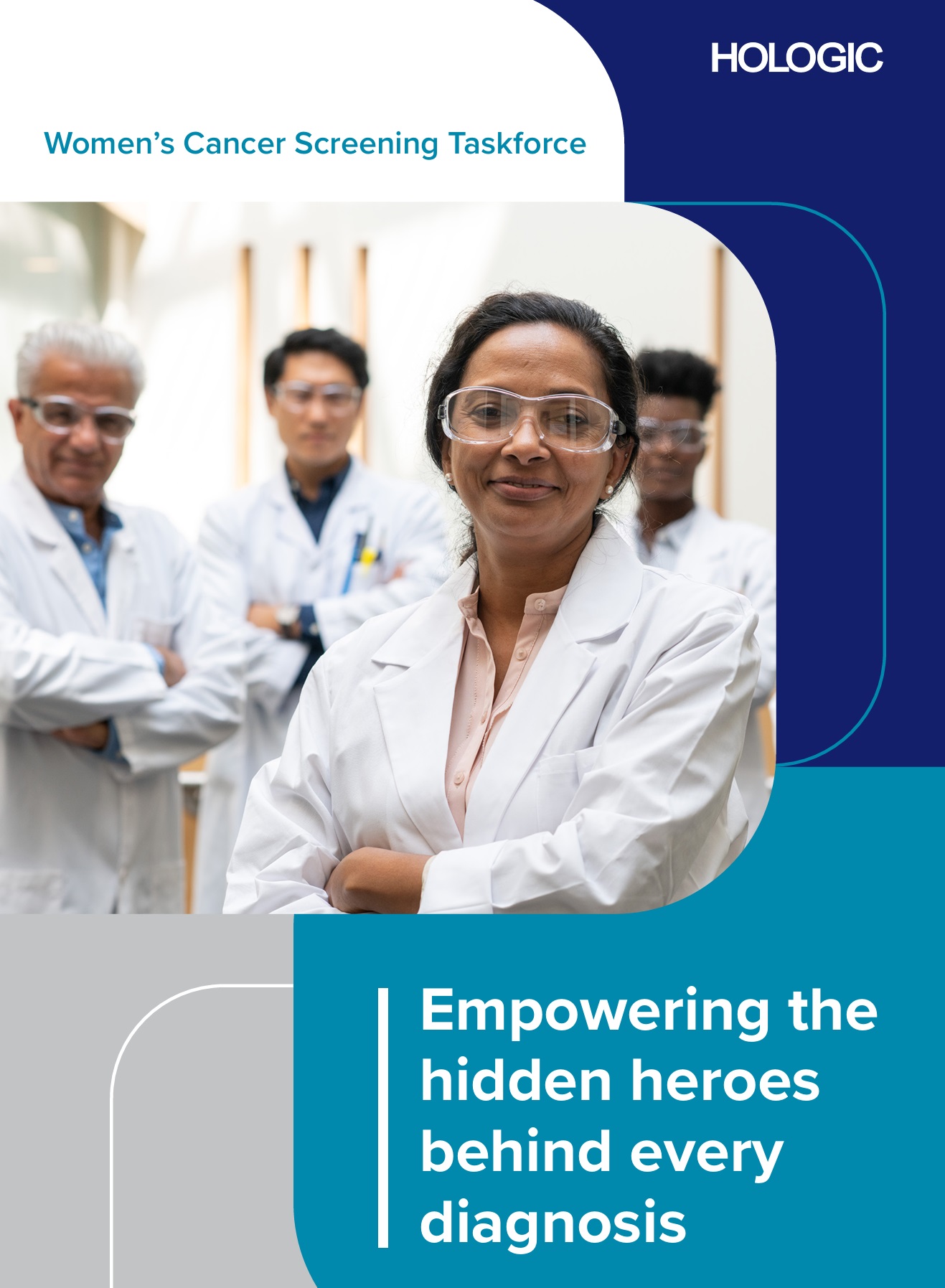Empowering the workforce behind every diagnosis

The recent Women’s Cancer Screening Taskforce report Empowering the Hidden Heroes Behind Every Diagnosis brings national attention to issues that many of our members have been raising for years.
At its core, the message is simple: if we want to improve breast and cervical cancer screening, we must invest in the people who deliver it. That means supporting the scientists, cytologists, pathologists and radiographers who work in NHS laboratories and screening services across the UK.
The report, developed by a group of leading clinicians and public health experts brought together by Hologic*, highlights three main areas where action is needed: faster adoption of innovation, structured support for the workforce sustainability and better access for underserved communities. I want to focus here on the workforce, because that is where the greatest and most immediate impact can be made.
As Tim Simpson, General Manager and Senior Director of Hologic UK, Ireland, Benelux and Nordics, noted at the report launch, “We cannot be complacent about women’s health. The cancer screening workforce are the foundation of our screening programmes.”
A service under pressure
The screening workforce is overstretched and undervalued. Many labs are managing persistent staff shortages, mounting case volumes and outdated IT systems. Career pathways in cytology and breast screening have narrowed as services have consolidated. Protected time for training, evaluation and professional development is rare. Yet despite this, the commitment to quality and patient care remains high.
The report calls for measures that reflect what we know works: long-term workforce planning, consistent job planning that includes time for professional development, and national promotion of earn-and-learn routes such as apprenticeships.
These are areas where biomedical scientists can, and do, lead. Our members are not only running screening tests, they are also training the next generation, evaluating technological advances and AI tools, as well as working with colleagues across disciplines to improve pathways.
Training and technology must go hand in hand
There is strong interest across the profession in using digital cytology and AI safely and effectively. But many labs are still waiting for the green light to implement validated systems already in use overseas. Without protected time or national coordination, local teams are unable to bring these innovations to enhance patient care.
Innovation cannot be a bolt-on. It must be planned, funded and embedded into everyday practice. That means giving scientists the time and training to use new tools, not just asking them to deliver more with less.
We welcome the Taskforce’s recommendation for a national framework that links adoption of technology with protected training time and structured digital education.
Reaching every patient
Equity is a theme that came through strongly in the Taskforce discussions. Missed screening appointments disproportionately affect women from low-income and ethnic minority backgrounds. Many of our members see the effects of this daily; late presentations, urgent referrals and complex diagnoses.
Lab staff can play a role here too, but we need better data. Interoperable systems that allow laboratories, GPs and outreach teams to share information would help identify gaps and ensure that the right people are reached at the right time.
We also need to fund trusted community partners - those who understand the barriers and can engage people in a way the health service often can’t.
What we’re doing
At the IBMS, we will continue to advocate for:
- Protected time in job plans for research, innovation and teaching
- Expanded apprenticeship and equivalence pathways into biomedical science
- Investment in training and digital readiness for screening staff
- National strategies that recognise the contribution of biomedical scientists to earlier diagnosis
We’ve contributed directly to the Taskforce report and are working to ensure its recommendations are heard by the right decision-makers.
This is an opportunity to reset how screening services are supported. It is a chance to recognise that laboratory professionals are not just part of the system - they are central to its success. If we want earlier diagnoses, better outcomes and a more equitable health service, the place to start is the workforce.
*Hologic, a global medical technology company primarily focused on improving women’s health through early detection and treatment, played an independent facilitator role in the collaboration of the Women’s Cancer Screening Workforce
